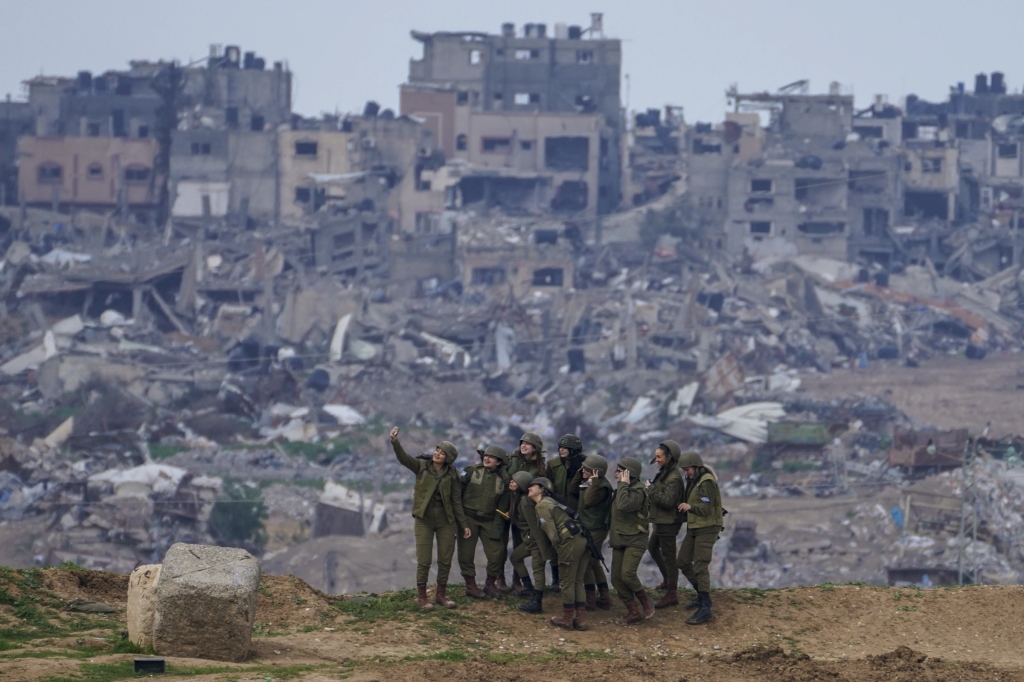From my weekly email message to Tzedek Chicago members:
So many people have told me that they are not sure how – or even if – they will celebrate Passover this year. With the genocide and forced starvation of the people of Gaza deepening with no end in sight, they say, it just feels beyond challenging to celebrate a festival of Jewish liberation. To make the moral dissonance even more dissonant, many in the Jewish communal establishment are framing Passover by focusing exclusively on the Israeli hostages in Gaza and call for their liberation from Hamas, with nary a mention of the 34,000 Gazans who have been destroyed in the process through a terrifying war of vengeance.
I personally understand this dissonance – and I certainly don’t begrudge those who choose to scale back of forgo Passover this year. Still, I’ve personally chosen to lean in to the festival nonetheless. Despite all the challenge and pain this Passover, I believe the festival can offer us a deeper understanding of what is really transpiring in Gaza at the moment, and how we might respond to it.
In some ways, it seems to me that Passover is a kind of lens that reveals the inner nature of Jewish identity itself, through the deep dialectic between the particular and the universal. For many Jews, Passover is first and foremost about us. This approach identifies deeply with the servitude and liberation of the Jewish people throughout our history, refracting the Exodus story against centuries of anti-Jewish oppression and Jewish survival.
However, this is certainly not the only way to read the Exodus narrative. This is, after all, a mythic story, and one that has been universally embraced by a myriad of spiritual, political and social liberation movements throughout history. Oppressed people and peoples other than Jews have long identified with the experience of the Israelites: MLK, for instance, would routinely frame the civil rights movement in the context of the Israelites’ struggle against the tyranny of Pharaoh in more than a few of his sermons and speeches.
As a Jew who cherishes the value of universalism, this is how I’ve come to understand the Exodus story and the festival of Passover: as a commemoration of Jewish struggle and liberation alongside so many others past and present. On every Passover in every generation, we must ask the question out loud: who is Pharoah and who are the Israelites? Indeed, in the age of Zionism, I believe this question resonates with deep moral reckoning. As I wrote in an article during Passover 2016 (with words I could have easily written in this very moment):
As I watch this tragic process unfold this Passover, I find myself returning to the universal lesson this festival imparts on the corrupt abuse of state power. Although the Exodus story is considered sacred in Jewish tradition, it would be a mistake to assume that the contemporary state of Israel must be seen as equivalent to the biblical Israelites.
On the contrary, any people who suffer under oppressive government policies are, in a sense, Israelites. And any state — even a Jewish state — that views a people in its midst as a demographic threat can become a Pharaoh.
In Tzedek’s seder supplement for this year, we make this universal moral assertion clear in our opening reading when we proclaim, If we read the Passover story as a story of Jewish liberation alone or – God forbid – Jewish liberation at the expense of others, we will not have fulfilled the requirements of the Passover seder. Through this approach to Passover, we reject the view that casts the Jewish people as eternal victims. We affirm that Jews are among a myriad of peoples who have struggled for liberation throughout history. And we reject the zero-sum mindset that other peoples’ freedoms must be swept aside in order to make way for ours.
I realize that this approach to Passover may feel a bridge too far for many Jews: either those who vehemently reject viewing Palestinians as Israelites, or those for whom it is just too painful to gather around the seder table at such a particularly tragic time. But I can’t help but believe that Passover – and Jewish spiritual tradition itself – is creative and resilient enough to give our community a way forward with moral courage, commitment and grace.
Sending blessings for a liberating Passover.
